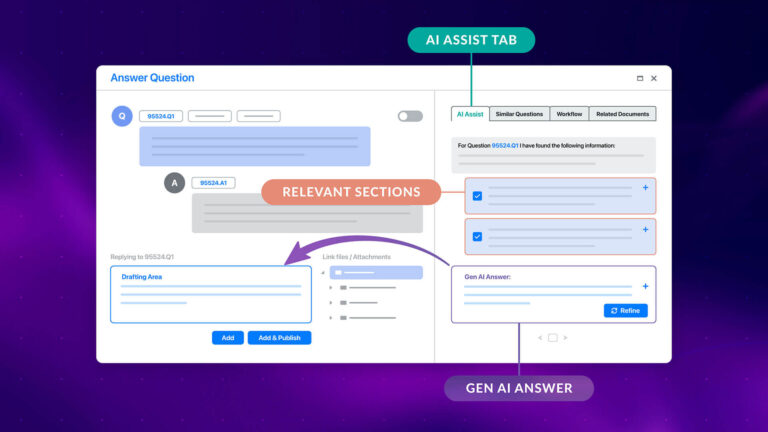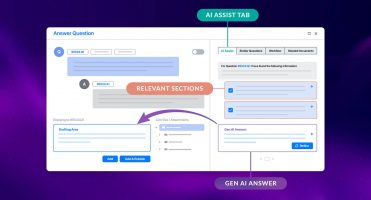The beginnings of AI’s impact on the legal profession is already noticeable. Legal professionals are adopting AI software solutions to automate many areas of their work, generating greater accuracy, efficiency, and cost savings. Over the coming years, AI’s impact on the legal profession will likely grow, significantly disrupting the sector as we know it.
How is AI currently being used in the legal profession?
AI software is being widely adopted in all legal profession areas to streamline processes and services, reduce operational costs, and improve client services. Legal AI solutions are utilised by professionals in the sector for the following purposes:
- Legal research
- Predicting case outcomes
- eDiscovery
- AI contract review and analysis
- Online legal services
- Litigation strategy
Using AI for these purposes has several benefits. Firstly, products like AI contract review software help lawyers to improve accuracy and save immense amounts of time compared with manual processes.
Secondly, legal services can be made cheaper using AI online legal services. This includes chatbots that answer common legal questions, for example. Through the use of AI in this area, legal assistance can become accessible for those who may previously have struggled to afford them.
All the areas in which AI is used in the legal profession can reduce human hours spent on tasks and improve clients’ service. Take the predictive AI software, for example, which scans databases and provides predictions on how a judge might rule. This saves a considerable amount of time a lawyer would otherwise spend researching and helps both them and the client make the best decisions.
The impact of AI on the legal profession
It is generally agreed that AI is set to disrupt the legal market significantly in the coming years. Some predictions have estimated that as many as 39% of jobs in the legal profession could be automated with AI.
While we are still a long way from robots replacing lawyers in the courtroom, lower-skilled or fewer specialist positions could be automated. This includes all or part of roles such as legal clerk, paralegal, and PA. Legal AI software is already encroaching on these roles by dispensing legal information and advice, carrying out detailed research and analysis, and reviewing documents.
AI software for the legal sector is capable of saving many hours of a professional’s time. This potentially means that law firms can save money by hiring fewer team members, which would limit the availability of high-skilled legal jobs and, as such, increase competition in the market.
However, a positive element for lawyers is that they may be able to reduce their working week. In a profession that’s long been known for demanding schedules, this would be extraordinarily transformational and may even encourage more people into the sector.
Another way AI may impact the legal sector is by altering the business models of law firms. Traditionally, law firms have billed hourly for services. This is part of what makes legal services so costly. But with AI automating many of the lengthy and laborious jobs, there is an argument that this model may no longer be viable.
Law firms embracing AI technologies will be able to reduce costs and perhaps move to fixed-rate billing significantly. Those left behind will struggle to compete in the sector if they don’t follow suit. It is, therefore, likely that AI will become embedded and be transformational in the legal profession over the coming years.
Find out more about Imprima’s AI-driven software for Due Diligence:






